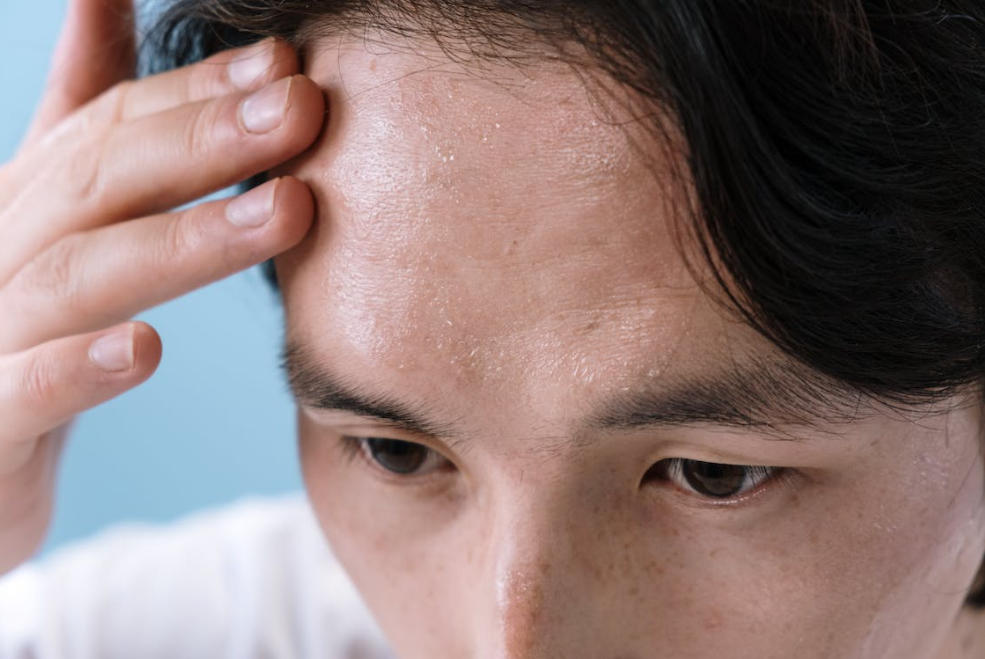How Mental Health Affects Your Life
Discover how mental illness affects your life and how it can be treated and cured.

Selfpause Affirmation App
Download the app to get 1,000’s of affirmation meditations and everything you need to write, record and listen to your own.
There are several different types of mental health disorders, and some of these can be hereditary. These conditions can be caused by certain genes and can be triggered by a specific life event. Environmental factors can also affect a person’s mental health. These diseases are often linked to the presence of neurotransmitters in the brain, which are naturally occurring chemicals that carry messages from different parts of the brain to other areas. Impaired networks of neurotransmitters can lead to emotional disorders.
Signs and symptoms

If you are concerned that your loved one might be suffering from mental illness, you should learn about the signs and symptoms. Early diagnosis will ensure that appropriate treatment is received. It can also reduce the impact of the illness and prevent it from progressing to a serious condition. Early warning signs of mental illness include sudden mood changes and social withdrawal. In addition, the person may lose interest in activities that they once enjoyed.
Other symptoms include sleep disturbances. Poor sleep may be an indication of depression or anxiety. It is common for people to have trouble falling asleep or staying asleep. They may also experience early morning wake-ups. Frequent oversleeping can also be a sign of fatigue and burn-out.
Physical symptoms of mental illnesses can vary greatly. Some people experience “brain fog,” where they struggle to remember details and focus on things. A person may also experience stomach pain, fluttering stomach, diarrhea, or other unexplained aches and pains.
Treatment options

There are several treatment options available to treat a wide range of mental health conditions. Some are based on psychotherapy, while others are medical interventions. Psychotherapy involves talking to a mental health professional about how to deal with your feelings. Other forms of therapy are creative, like art or music therapy.
Psychotherapy is a popular form of treatment for many mental health problems. It involves talking with a mental health professional about problems, and includes an educational element. Often, it also involves learning coping skills, stress management, and relaxation techniques. There are a variety of different types of psychotherapy, including cognitive behavioral therapy (CBT), dialectical behavior therapy (DBT), and mindfulness. Individual sessions are usually one-on-one, but can also be offered in group settings. In some cases, family members may be involved in therapy.
One of the most common mental health disorders is major depressive disorder, which is characterized by depressive episodes. The symptoms vary from person to person, but they often interfere with the person’s ability to function. Similarly, anxiety disorders involve excessive worry or anticipation of danger. They may also lead to excessively avoidable behaviors such as avoiding situations that cause the person anxiety. Other mental health disorders include obsessive-compulsive disorders, which involve recurring, repetitive thoughts or behaviors. Examples include hair-pulling and hoarding.
Common mental health conditions

There are a variety of factors that can affect a person’s mental health. Long working hours, family problems, or economic hardships can all affect a person’s mood and overall well-being. While mental illness is often treatable, it is also a life-threatening condition and can cause a person to feel hopeless and isolated. Thankfully, the treatments available today are highly effective. Studies have shown that 70 to 90 percent of people can experience a reduction in symptoms and improve their quality of life.
Many mental health disorders are treatable with medication, but treatment can also include lifestyle changes. Counseling can teach a person how to change their own thoughts and behaviors, which can reduce the risk of self-harm and isolation. Many patients with mental illnesses also choose to take prescribed medications to alleviate symptoms and help them get back to living their lives.
Mental illnesses can affect anyone, regardless of race, religion, or income level. They can affect how you think, feel, and behave, which can affect your ability to function at work, at home, or in social situations. The best treatment for these conditions involves an accurate diagnosis. By actively participating in treatment, most people can recover from their symptoms.
Effects on physical health
Physical health and mental health are closely related. The former is an endogenous regressor of the latter. The joint estimation method is used to estimate the effects of physical and mental health. Among the variables that were tested for the effect of PCS on MH were physical activity level, long-term health conditions, and shock events to the physical health instrument.
Previous studies have shown that social engagements and physical activities protect against mental illnesses. Physical exercise also mitigates depression and anxiety. Physical exercise increases tryptophan levels in the brain, which stimulates serotonin synthesis and helps to reduce anxiety. However, there is more to mental health than meets the eye.
Psychological health is vital for overall health. A positive mood can prevent many serious health conditions, including heart attacks and strokes. Depression, for example, can affect the body’s signaling pathways and lead to fatigue, poor sleeping habits, and unexplained aches and pains. Anxiety, too, can affect the cardiovascular system and increase blood pressure.
Signs and symptoms of depression

Mental health problems can be difficult to live with, but early treatment can help you avoid them and get back to your regular routine. It’s also important to take care of yourself, get enough sleep, eat a balanced diet, and engage in regular physical activity. You should also make sure to talk to your primary care provider about your specific needs.
Studies show that good mental health can help you avoid many health problems, including heart disease and stroke. It may even help you prevent the onset of some serious health problems, like depression. Depression causes people to feel exhausted, have trouble sleeping, and experience unexplained aches and pains. It can also affect signaling pathways in the brain. People who suffer from depression are also more likely to develop heightened blood pressure and coronary heart disease.
Good emotional health starts with awareness of one’s thoughts and feelings and learning healthy coping mechanisms. A healthy relationship and good self-esteem are also crucial to good mental health. A person with depression will experience intense feelings of hopelessness for extended periods of time. Often, these feelings can even lead to suicidal thoughts. If you’re suffering from depression, it’s important to seek out professional help. Your family doctor, a counselor, or a religious adviser can help you identify and address any mental health issues.
Treatment options for sleep apnea
There are a variety of treatment options for sleep apnea. One of them is continuous positive airway pressure (CPAP). This device provides a constant stream of air into the nose while you are sleeping, keeping your airway open. This method is a good option for moderate to severe cases of sleep apnea.
One of the symptoms of untreated sleep apnea is excessive daytime sleepiness. The condition is also associated with an increased risk of depression. Many patients who suffer from depression also experience sleep problems. However, there are treatment options available for both types of disorders.
People with apnea should consult a sleep medicine specialist. They can assess the severity of their symptoms and take a full medical history. While the gold standard is a sleep study, portable monitors can be used in the bedroom to monitor breathing, heart rate, and oxygen levels in the blood.
Suicide

According to the Centers for Disease Control and Prevention, about four out of ten suicide victims had a documented mental health problem at the time of their death. These statistics do not account for undiagnosed cases, but they do support the notion that mental illness is an important risk factor for suicide. These findings also support the need for effective identification and assessment of mental health conditions.
The most common diagnosis in people who commit suicide is depression, followed by alcoholism and substance use disorders. These comorbid conditions can be risk factors for suicide and can also contribute to the cause of the death. In one study, researchers examined the link between comorbid disorders and the risk of suicide among patients with severe depression. These patients were compared to matched controls. While only a small proportion of patients survived the long-term follow-up, the results suggest that comorbid disorders are important risk factors for suicide.
Immigrants have a higher risk of suicide than native-born people. This risk is compounded by language barriers and worrying about family back home. Loss of social support and status also appear to be risk factors.
Treatment options for schizophrenia
Schizophrenia is a serious medical condition that can have devastating effects on a person’s life. Symptoms can include difficulty experiencing and expressing emotions, lapses in memory, and poor judgment. As a result, a person who is diagnosed with schizophrenia is usually required to receive prolonged monitoring and treatment. Early diagnosis is extremely important and improves the patient’s chances of recovery.
Fortunately, there are many effective treatment options for schizophrenia. Some of the most effective treatments include medication and psychotherapy. The goal of psychotherapy is to improve the patient’s quality of life and decrease the patient’s symptoms. This treatment often involves group sessions. Patients and their family members can be involved in these sessions. These sessions can help reduce the stress and guilt associated with the condition.
While inpatient care is the most common form of treatment for schizophrenia, outpatient treatment is also available. This type of treatment is usually less restrictive than inpatient care, and patients don’t have to stay in a hospital overnight. Nevertheless, people with acute psychotic symptoms may require hospitalization. Generally, this type of care is less restrictive than outpatient care, and the patient can receive intensive therapy.
Our Top FAQ's
Mental health can have a significant impact on daily functioning and overall quality of life. Poor mental health can interfere with an individual’s ability to work, go to school, and participate in daily activities. It can also affect relationships, causing problems with communication, intimacy, and trust. In addition, poor mental health can lead to physical health problems, such as increased risk of heart disease, stroke, and other health conditions.
There are many different mental health conditions that can affect an individual’s life, including:
-
Anxiety disorders: These conditions involve excessive worry and fear. Examples include generalized anxiety disorder, panic disorder, and phobias.
-
Mood disorders: These conditions involve changes in mood, such as depression or bipolar disorder.
-
Personality disorders: These conditions involve patterns of thinking and behavior that are inflexible and maladaptive. Examples include borderline personality disorder and narcissistic personality disorder.
-
Psychotic disorders: These conditions involve hallucinations, delusions, or other types of abnormal thinking. Examples include schizophrenia and schizoaffective disorder.
-
Eating disorders: These conditions involve abnormal eating behaviors and attitudes towards food. Examples include anorexia nervosa and binge eating disorder.
There is a strong link between mental health and physical health. Poor mental health can lead to physical health problems in a number of ways, including:
-
Changes in brain chemistry: Mental health conditions can alter brain chemistry, leading to physical symptoms such as changes in appetite, sleep patterns, and energy levels.
-
Chronic stress: Chronic stress can have negative effects on the body, including increasing the risk of heart disease, stroke, and other health conditions.
-
Risky behaviors: Poor mental health can lead to risky behaviors, such as substance abuse and unhealthy eating habits, which can increase the risk of physical health problems.
There are many strategies that can help to manage and improve mental health, including:
-
Seeking professional help: Seeing a mental health professional, such as a psychologist or psychiatrist, can be an effective way to manage mental health conditions.
-
Engaging in self-care: Taking care of one’s physical and emotional needs, such as getting enough sleep, eating a healthy diet, and engaging in physical activity, can help to improve mental health.
-
Practicing relaxation techniques: Techniques such as meditation, deep breathing, and yoga can help to reduce stress and improve mental well-being.
-
Connecting with others: Building and maintaining positive relationships with friends, family, and other support networks can be beneficial for mental health.
-
Seeking support: Joining a support group or seeking the support of friends and loved ones can be helpful in managing mental health conditions.
An individual’s social support network, which includes their friends, family, and other relationships, can have a significant impact on their mental health. Having a strong social support network can provide a sense of belonging, reduce feelings of isolation, and increase self-esteem. On the other hand, a lack of social support can contribute to poor mental health. Research has shown that individuals with strong social support networks tend to have better mental health outcomes, including lower rates of depression and anxiety.
